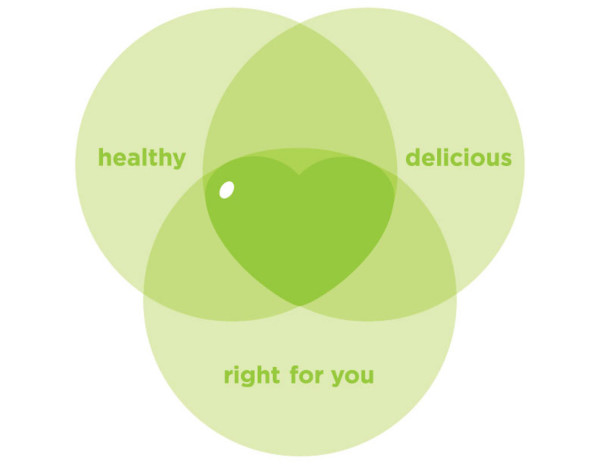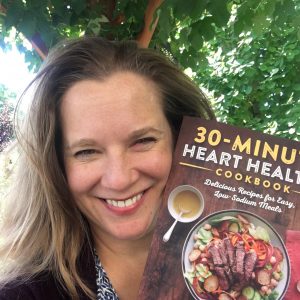A Balanced Approach to Heart Healthy Nutrition
This week in my conversation, we will explore the journey of Cheryl Strachan, a registered dietitian from Canada, who shares her experience working in cardiac rehabilitation and her approach to nutrition for heart health. Cheryl’s unique perspective led her to develop the “sweet spot” approach, which focuses on finding the intersection between healthy food and personal taste preferences. We will delve into the importance of nutrition in cardiac rehab programs, the challenges faced, and the significance of finding balance and moderation in maintaining a heart-healthy lifestyle.
My interview with Cheryl about her journey becoming a registered dietitian specializing in cardiac rehab reflects her passion for helping individuals find their sweet spot in nutrition. It’s a fun interview and involves chocolate and wine!
Please note that since we recorded this episode, alcohol recommendations have become quite a bit more conservative, due to more recent studies that link alcohol to cancer and heart disease even at relatively low levels. (In Canada the new guidelines say low-risk drinking is 0-2 per week, moderate risk is 3-6 per week, and the risk goes up from there.😳)
Click player to listen or have a quick read of the outline of our discussion below.
The Evolution of Cheryl’s Career
Cheryl Strachan began her career in sales and marketing but was always drawn to helping people and solving problems. At the age of 32, she made a bold decision to pursue her passion and became a registered dietitian. She started working in the cardiac rehab program in Calgary, Canada, where she found immense satisfaction in working with individuals who were motivated to make positive changes in their lives.
The Role of Nutrition in Cardiac Rehabilitation
In the early days of cardiac rehab, exercise and nutrition programs were relatively new and experimental. Cheryl describes how the program initially included several nutrition classes, along with exercise sessions, social work, and psychology support. However, due to budget cuts over the years, the emphasis on nutrition education reduced, and currently, most programs offer only one nutrition class. Cheryl acknowledges the challenges of limited resources and shares her insights on the need for a more comprehensive and personalized approach to nutrition in cardiac rehab.
Cheryl’s Private Practice
In 2014, Cheryl transitioned to private practice to provide more in-depth support to individuals seeking cardiac rehab and prevention. Her practice primarily focuses on heart-related concerns, including prevention for conditions such as diabetes, high blood pressure, and high cholesterol. She emphasises the importance of prevention, recognising that proactive measures can significantly reduce the risk of heart events.
The Sweet Spot Approach
Cheryl’s “sweet spot” approach stems from her husband’s observation that healthy food and enjoyable food were often seen as separate entities. She built on this idea to create a framework that considers the unique needs and preferences of each individual. The approach involves finding the overlap between food that supports one’s health, aligns with personal tastes, and fits other lifestyle factors like budget and time constraints.

Personalising Nutrition for Long-Term Success
Rather than providing generic meal plans, Cheryl focuses on helping individuals discover their own sweet spot in nutrition. This approach encourages clients to understand their dietary needs, make informed choices, and build sustainable habits that align with their health goals. She emphasizes that long-term success lies in finding a balance between foods that support health and foods that bring joy or convenience, with the majority (around 80%) aimed at supporting overall well-being.
Understanding Moderation
Cheryl acknowledges the common phrase “everything in moderation” and provides a practical perspective on this concept. While moderation can vary depending on individual preferences and health conditions, she suggests a general guideline of aiming for 80% of one’s diet to consist of foods that support health, with the remaining 20% allowing flexibility for enjoyment, convenience, or other personal factors.
The Role of Weight in Heart Health
Cheryl promotes a weight-inclusive approach in her practice, focusing on overall health gains rather than solely emphasizing weight loss. She cites the Look Ahead study, which found that intensive weight loss interventions did not improve heart health outcomes in the long run. Instead, she highlights the importance of lifestyle factors such as following a Mediterranean diet and engaging in regular exercise, which have been shown to significantly reduce the risk of cardiac events.

How to reach Cheryl: https://sweetspotnutrition.ca
Free Book, The Sweet Spot Guide to Eating Well with Heart Concerns
Why not join Cheryl in the Sweet Spot Kitchen: The kitchen is the heart and soul of your home – and the Sweet Spot Kitchen is the heart and soul of my cardiac nutrition program. Simply knowing what to eat after a heart event or diagnosis isn’t enough. Staying committed day after day, year after year can be challenging.
Find your Sweet Spot with food that’s healthy, delicious, and right for you, with guidance from me and the support of an entire community.
Studies and trials mentioned by Cheryl in our discussion
- The Look AHEAD Study
- Mediterranean diet Studies
- Lyon Diet Heart Study
- Lifestyle Heart Trial
Buy Cheryl’s Book on Amazon:

